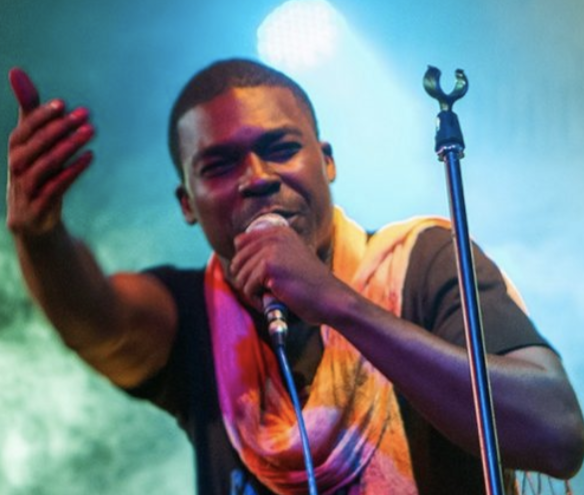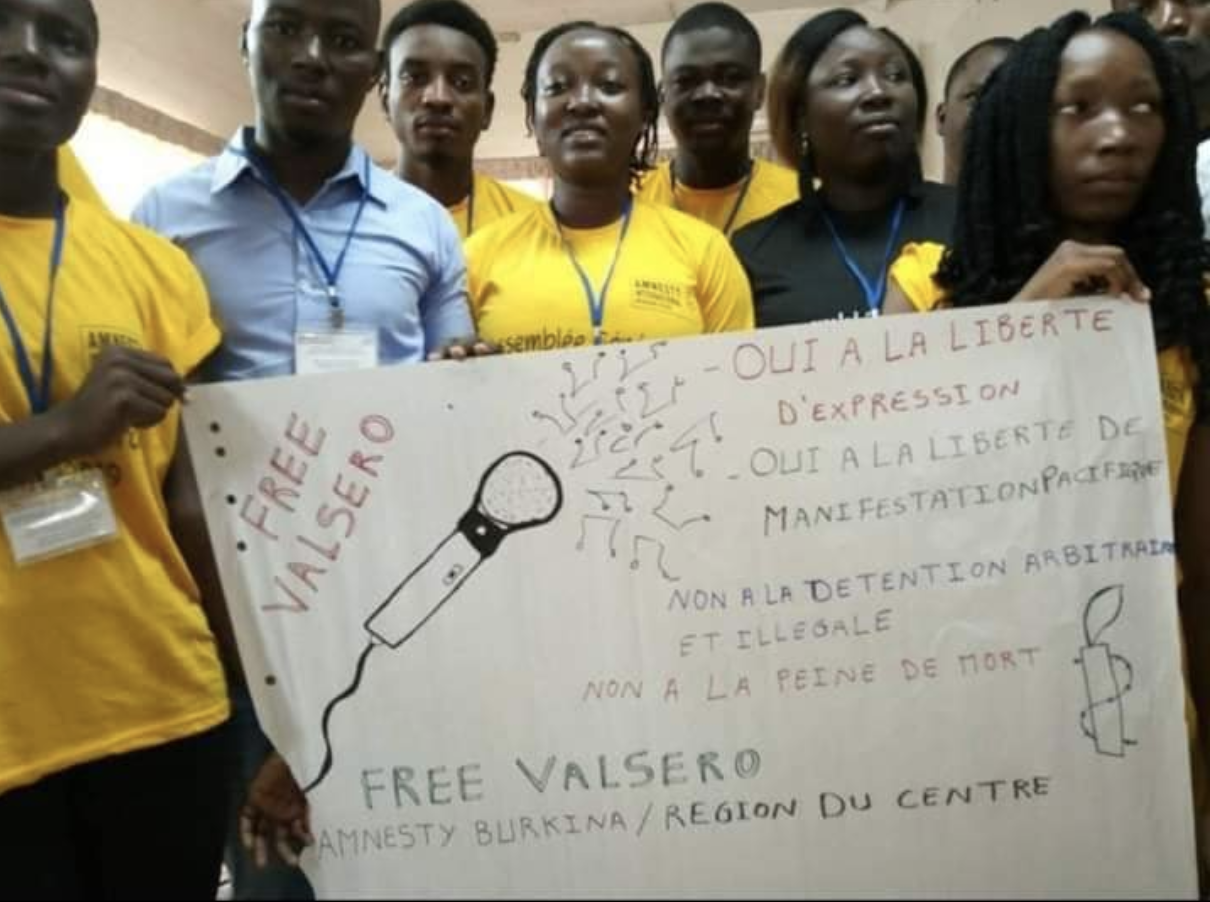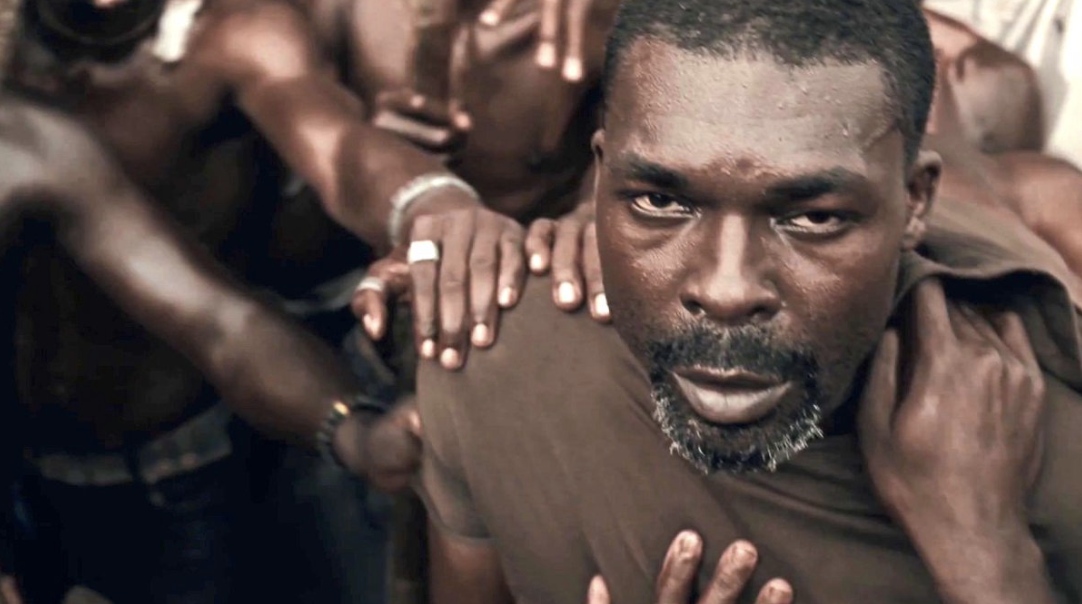Valsero
Rapper
Cameroon

Valsero was born in Yaoundé, Cameroon in 1975, and spent his early years in Marseille, France before resettling in Yaoundé with his father in 1987. In 1990, the rapper officially launched his music career, collaborating with musician Bachirou to form the rap group Ultimatum. One of the first groups of its kind at a time when hip-hop and rap were not taken seriously in Cameroon, Ultimatum paved the way for other hip-hop artists in the country. The group produced music for about three years before officially splitting up in 1997. In 2002, Valsero returned to the rap scene, forming a group called K’ROZ’N with two of his childhood friends. After touring with K’ROZ’N, Valsero started searching for new employment opportunities. Despite being well-educated, Valsero struggled to find work, becoming disillusioned with the apparent corrosive effects of Cameroon’s corrupt politics on the workforce.
Valsero’s solo career began in 2008, in the midst of a heated political climate in Cameroon after President Paul Biya dissolved presidential term limits, an action that was met with widespread violent protests. Valsero’s first solo album, Politiquement Instable, established the artist as a leading voice for young Cameroonians who opposed the ruling regime’s authoritarian tactics. Although many TV and radio stations avoided playing the album in fear of retaliation for its political content, the album became so popular that Valsero’s adoring fans started calling him “The General” and “Général Valsero.”

Valsero’s first album, Politikement instable, established him as a voice for Cameroonian youth
The songs on this album, “Çe pays tue les jeunes” (“This Country Kills the Youth”), “Ne me parlez plus de Cameroun” (“Do Not Talk to Me about Cameroon Anymore”), “Lettre au President” (“Letter to the President”) and others depict the struggle of being young and living in Cameroon under the Biya administration and also strive to spread awareness about civil and political rights. His lyrics call for greater accountability and transparency from the government and more democratic processes for the country.
Following the success of Politiquement Instable, Valsero released a single titled “Répond,” in 2009. Shortly after, Valsero released his second full album, Autopsie d’un crime d’état, (Autopsy of a State Crime) in 2010. Just one year later, the artist released his third album, L’appel du peuple (The Call of the People), making that three albums and one single in four years.
But the powerful effect of Valsero’s first album was not only met with admiration; it also drew the government’s ire. He was detained a number of times by Cameroonian police forces and had many concerts banned over the years, but on January 26, Valsero was arrested on the outskirts of a demonstration in protest of the previous year’s presidential election, which many Cameroonians saw as rigged to favor Biya. Biya, who has been in power since 1982, has maintained office through decades of intimidation and force, and his regime has taken countless measures to curtail freedom of expression. According to Freedom House, journalists in the country are at heightened risk of detention because of their work, as defamation remains an indictable offense, and many people refrain from expressing themselves out of fear of reprisal. Periodically, Biya has shut down or severely limited internet access or blocked social media as a way of halting the flow of information and impeding citizens’ ability to mobilize.

Activists from Amnesty Burkina Faso calling for Valsero’s release
Following his arrest, Valsero was held without bail in terrible conditions for over eight months, awaiting trial in military court on spurious charges of rebellion against the state, terrorism, insurrection, inciting public disorder, and spreading false information. Some of these charges could have carried the death penalty.
Censorship and authoritarian rules in Cameroon have left little room for artistic expression. Valsero, alongside other rap pioneers, has created music with the heavy burden of representing the genre and the younger generation on his shoulders. Valsero’s fans believe his music has given a voice to the marginalized and forgotten youth of Cameroon, capturing the essence of being young under a corrupt political regime during a period of unrest. The artist’s wide array of interests even extends to film: Valsero participated in Jean Pierre Bekolo’s historical drama, “Le President,” released in 2013, and he was the focus of the documentary film “Du Piment sur les lèvres” (“Chili on the Lips”).

Still from music video for Valsero’s song “Resistance”
Valsero’s fight for democracy and against authoritarian rule through song and activism made him a direct target for those in control. His arrest reveals the ongoing strength of music and art to unite people and the lengths authoritarian officials will go to suppress dissent, but his release also demonstrates the dedication of his supporters and the power of mobilizing around a common cause in the face of oppression. In a demonstration of solidarity, artists and musicians from around Cameroon created video messages of support for Valsero, and advocacy groups such as Amnesty International created international petitions for his release. On October 5, he was liberated along with about 100 other political prisoners who were arrested in the same sweep (Valsero’s sound engineer, however, reportedly remains behind bars). Once again free to make music in peace, his songs will surely continue to inspire around the country and world.
By Anna Schultz, October 2019. Anna is pursuing a B.A. at Sarah Lawrence College, concentrating on politics and history. She hopes to use her academic studies and her passion for art to advance sociopolitical progress and defend human rights.





